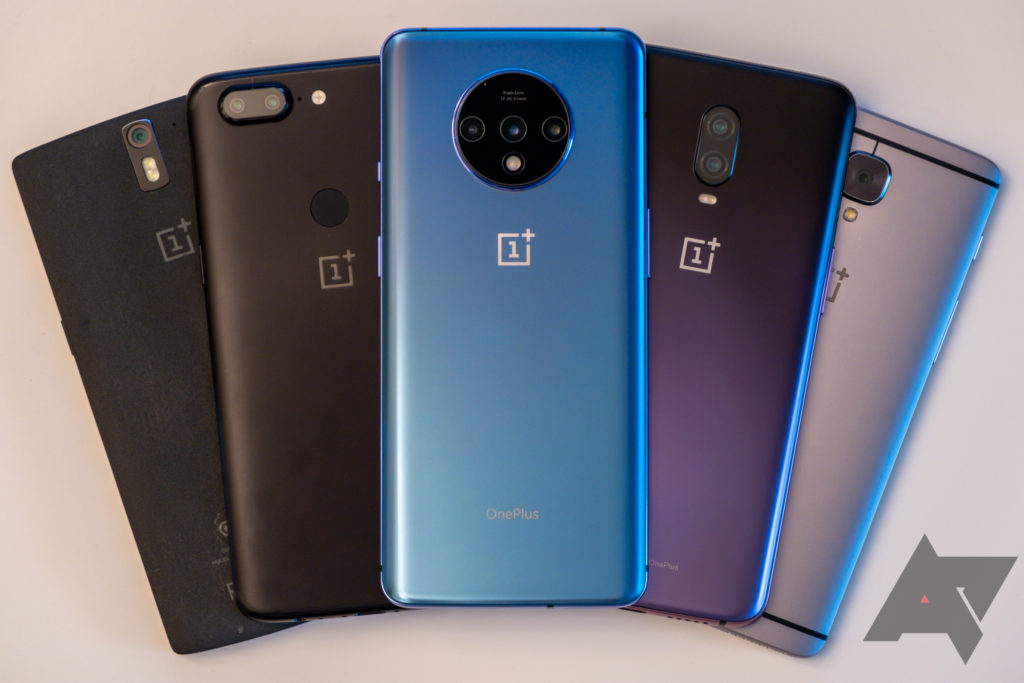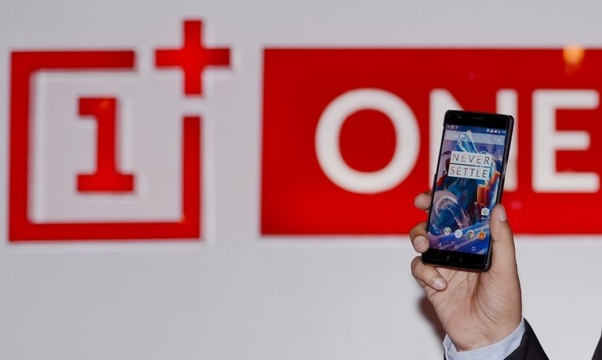While at a meeting with the team in a cafe, all the 5 members noticed that they were using iPhones. The reasons for not using android were the bad build quality, software not intuitive, and many more reasons. This was where the idea popped in and OnePlus came into the picture.
The people who had this thought were Pete Lau and Carl Pei, the founders of One Plus Technology Co. Ltd. They had the vision to provide high-quality smartphones which could be at par with the competitor’s products in terms of features and quality but at an affordable price. The aim was to be the ‘Muji of the tech industry’
It was founded on 16th December, 2013 and was popularly known as One Plus. It is based in Shenzhen, Guangdong, and owned by BBK electronics which is the third-largest smartphone manufacturer in the world.
It launched its first smartphone, the OnePlus One on 23rd April 2014 and within a year, it was competing with well-established brands like Apple and Samsung. It went on selling about 1.5 million smartphones in a year of its launch and identified itself as the “Flagship Killer”.
A unique way of launching its first product
They didn’t follow the traditional way of selling their products via retail stores and didn’t spend a penny on its advertising initially. Rather, it used online marketing, tried to reach the community by offering the smartphone on an invite basis, and kept the price as low as $299 for 16 GB and $349 for 64 GB version. The goal at that time was not to earn profits but to reach the masses, make it possible for them to use the smartphone, and earn their trust and they actually succeeded in that.
OnePlus had its own share of struggles
The brand was banned for some time by the Indian High Court after an allegation was put up by Micromax that only Micromax was allowed to ship smartphones with Cyanogen mod software in India. However, this ban was lifted after some time when OnePlus clarified that this right was only for the phones manufactured in India. After this, the brand started to build its own custom Rom (Oxygen OS) for the next devices.
Products
After the success of OnePlus One, OnePlus 2 was launched in July 2015. For the third smartphone by OnePlus i.e OnePlus 3, the invite-only system was lifted and was made available in the retail markets of countries like China, North America, Europe, etc.

The launch of the OnePlus 6 in early 2018 proved to be a blockbuster and outran the market for Apple iPhone. In 2019, the OnePlus 7 series grabbed the first position in India’s premium smartphone market for the value that is provided. Innovations included bezel-less displays, adoption of high refresh rate (90hz), and is the first smartphone with Qualcomm’s Snapdragon 855 Series application processor in India. With the kind of features they are offering at such an affordable price, the brand has become the first premium smartphone brand to cross two million shipments in a year in 2019.
Fast-forwarding to May 2020, both the phones in the OnePlus series i.e. OnePlus 8 and OnePlus 8 pro have been manufactured in Noida, India.
With so much innovation and newly added features in each of the smartphones, it will be exciting to see what the new series of smartphones OnePlus 8 has to offer. It has been launched already a month back and is available for purchase from 29th May 2020.
The smartphones series
| Name | Codename | Unveiled | International Release |
| OnePlus One | bacon | 23 April 2014 | 6 June 2014 |
| OnePlus 2 | oneplus2 | 27 July 2015 | 11 August 2015 |
| OnePlus X | onyx | 29 October 2015 | 5 November 2015 |
| OnePlus 3 | oneplus3 | 14 June 2016 | 14 June 2016 |
| OnePlus 3T | oneplus 3t | 15 November 2016 | 28 November 2016 |
| OnePlus 5 | cheeseburger | 20 June 2017 | 27 June 2017 |
| OnePlus 5T | dumpling | 16 November 2017 | 21 November 2017 |
| OnePlus 6 | enchilada | 16 May 2018 | 22 May 2018 |
| OnePlus 6T | fajita | 29 October 2018 | 6 November 2018 |
| OnePlus 7 | guacamole | 14 May 2019 | 25 May 2019 |
| OnePlus 7 Pro | guacamole | ||
| OnePlus 7T | hotdog | 26 September 2019 | 28 September 2019 |
| OnePlus 7T Pro | hotdog | 10 October 2019 | 12 October 2019 |
| OnePlus 8 | instantnoodle | 14 April 2020 | 21 April 2020 |
The brand strategy behind OnePlus astounding success in India
OnePlus has proved that creative and innovative marketing is all that a product needs, to occupy a large market share and to attract the target customers. Since its entry in the Indian market in December 2014, it has been competing with the well-established brands in this industry and has become one of the top choices of the youth. You must be thinking of how the brand was able to do that in merely 5 years. Here’s the answer.
Influencer Marketing
OnePlus has collaborated with the top influencers in the country and thus was able to market its smartphone through social media platforms. For eg,. it collaborated with Netflix and released the first look of sacred games season 2 claiming that is was shot by its smartphone and saw huge traffic on its social media handles. It also used the influence of famous personalities, actors, etc. to reach the masses.
Tie up with Amazon
This smartphone brand started with only online sales and Amazon was the only e-commerce platform where customers could order their phones. By not going for offline sales initially, the brand was able to manage its inventory and there were no extra costs involved in opening up stores. The decision to open an offline store after having grabbed a large share of the market was a smart idea.
#NeverSettle: Why settling for an inferior phone due to lack of affordability?
This hashtag and this question created a buzz in the Indian smartphone market. OnePlus showed how a hashtag can be a powerful tool that could help connect with the audience. Especially in this era where people spend a few hours of their time daily on Instagram and Twitter, this idea was indeed helpful.
Word of the mouth marketing campaign
Customers were not allowed to directly purchase the OnePlus handset. Rather, it had to be bought by procuring an invite by friends who have bought the phone set. This way, an exclusive community of OnePlus owners was formed. This led to people talking about the brand and ultimately known as a word of the mouth marketing campaign. This was very effective at the initial phase of its launch. Now, the direct selling of smartphones is applicable and anybody can purchase that.
Also Read: Ather Energy – The Indian Startup Building Smart And Intelligent Vehicles
Service
OnePlus team ensures that their customers’ problems get resolved quickly and are continuously worked on it. There are above 40 service centers in India taking care of their customers’ problems to ensure a pleasant experience with their smartphones.
Currently, about one-third of the company’s revenue comes from India making it the largest market for its Android smartphones. It also has captured 33% market share in the premium smartphone segment dropping Samsung and Apple to second and third place with 26% and 25% market share simultaneously.
There are around 30 offline OnePlus Experience Centres in India till now. Innovating the product and upgrading the users’ experience regularly has been the reason for its growing success with each coming year.
To read more content like this, Subscribe to the Newsletter.

